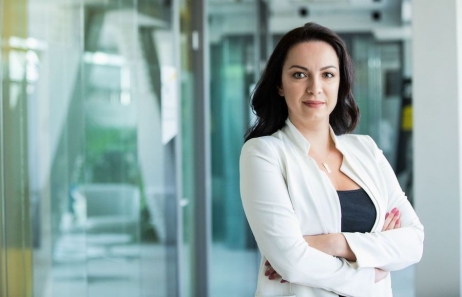
Author: Laura Ciobanu, Manager, Climate Change & Sustainability Services, EY Romania
The negative influence of economic development on the environment is a recognized fact for a long time. Due to a multitude of environmental challenges, the governments are now facing an ever-increasing pressure to identify new ways for reducing the environmental impact of anthropic activities without affecting the economic growth. It is clear that the influence of these measures will be also reflected in the activity of the producers.
Plastic materials have become a major concern and priority for the EU, especially taking into account that more and more plastics are manufactured. For instance, in 2016 almost 60 millions tons of plastics were manufactured in the EU, according to Plastics Europe, a twentyfold increase compared to the ‘60s; 24 million tons of the total 60 million tons are represented by plastic packaging. Although the recycling rate of plastic packaging has increased across the EU, reaching almost 41% in 2016, plastic production is also increasing at an alarming rate. Final waste quantities will increase significantly if we add paper/cardboard waste, metal waste, glass and wood waste on top of plastic packaging waste.
This is where environmental taxes play a significant role. They are an important tool in raising awareness amongst companies and households, which have to take into consideration the environmental impact and also understand how their activities or behaviors translate into costs.
Consequently, there are many countries that levy significant taxes for all companies that put packaging on the national market. These types of taxes cause the price of an end product to increase but they are also a stimulus for:
Increased innovation: companies need to develop new types of packaging, manufactured from more durable and resistant materials which can be repaired easier and which can be reused. An added benefit of using reusable packaging is that the environmental taxes are paid only once instead of each time when the packaging is first put on the market;
Optimizing how goods are packaged as well as for optimizing the shape of packaging so that the use of materials/ raw materials is reduced;
Encouraging businesses to design and use plastic packaging which is easier to recycle in order to drive the development of more sustainable packaging;
Improving the separate collection of waste in order to ensure that the resources used in the recycling industry have a higher quality.
Thus, we note the tendency to adopt as widely as possible the concept of circular economy, in which a major emphasis is placed on the reuse and recycling of products and materials, to the detriment of their elimination. Considering this, but also the fact that until 2030 all plastic packaging placed on the EU market must be reusable or recyclable, this is the best time for companies to truly start innovating, rethinking their strategy, and protecting the environment to become one of the main pillars in the transition to a sustainable business model.
We can also note among the Romanian companies a growing interest in various solutions adapted to the requirements of the circular economy. An example would be the reverse logistics through which companies can adopt return policies that allow consumers to get rid of old products when purchasing new ones. In this way, both the materials contained in the product and their packaging can be reused or recycled after the life of the product has ended. At the same time, this approach could offer the option that not only the used products, but also the spare parts or components can be returned, to go to remanufacturing, repair or recycling, depending on the most suitable solution.
Another opportunity is related to the replacement of disposable plastic materials, in conditions of the adoption by the European Parliament of the Single-Use Plastics Directive. In this context, by 2021 will be banned single-use products made of plastic: plates and cutlery, beverage straws, cotton bud sticks and other similar products. As a result, companies have started to come up with alternatives to traditional plastic packaging, such as those made from corn starch or sugar cane.
It is true that in the short term, the transition to a sustainable business model may seem less profitable. However, in the long term, economic studies have shown that sustainability will increase the efficiency of the processes, which will later translate into a reduction of costs. In addition, the focus on these new solutions also comes with benefits on reducing pollution, less waste generated and a positive impact on human life and the environment. At the same time, it is important to note that these efforts could be funded through EU research funds.
Therefore, we can state that green taxes are indeed encouraging companies, organizations, households and individuals to change their behavior. They are more than an instrument for taxation but an economic leverage that has a significant role to play in addressing environmental problems and also in reducing the negative impact on the environment.



 November 08, 2019 12:55
November 08, 2019 12:55 










